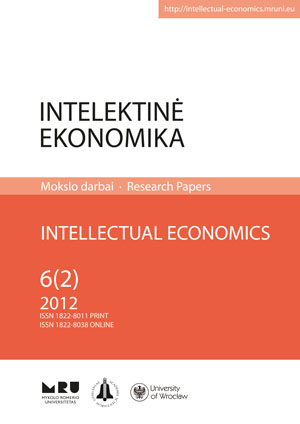Depreciation Under the Law of the Slovak Republic and its Recent Changes in Response to the Ethical Aspect of Public Finance
Depreciation Under the Law of the Slovak Republic and its Recent Changes in Response to the Ethical Aspect of Public Finance
Author(s): Agneša Víghová, Jaroslav DobišSubject(s): Economy
Published by: Mykolas Romeris University
Keywords: Depreciation; accounting; legislation; public finance; corporate financing
Summary/Abstract: In general “depreciation” is considered as a book-keeping cost item, representing the costs related to the consumption of investments throughout the transformation process. On one hand, depreciation is also the source for financing technological growth of the enterprise, on the other hand, application of depreciation results in the decrease of the tax obligation. A reasonable manager follows all changes in the accounting and tax codes of the country where a manager has his/her tax obligations. At the same time, Corporate Taxes are an important part of the state budget, and therefore every change in the legislation governing depreciation affects the quality of the business environment and also the revenue part of the state budged. Adequate and proportionate settlement of the depreciation legislation is very important for both corporations and the state. In this article we are presenting recent and latest changes in the Slovak legislation in terms of depreciation, the reasons for such changes and the corporate opinions about them.
Journal: Intelektinė ekonomika
- Issue Year: 6/2012
- Issue No: 2
- Page Range: 57-64
- Page Count: 8
- Language: English

